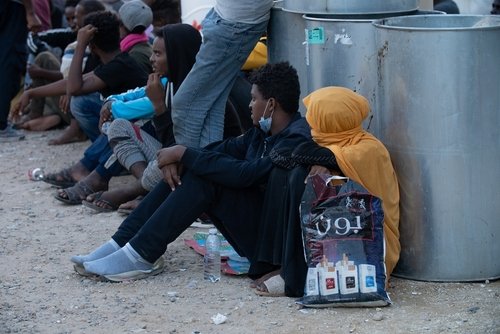Belgium (Brussels Morning Newspaper), A few days ago, the Italian government, under the leadership of Prime Minister Giorgia Meloni, struck a controversial migrant deal with Albania, a move that has sent ripples of concern across the European Union. This deal, pertaining to the handling of boat migrants, seems to have caught the European Commission by surprise, raising critical questions about its implications and legality within the broader context of European asylum policies.
The core of this agreement lies in the establishment of two new centers in Albania designated for processing asylum applications. This pioneering initiative marks Italy’s foray into a relatively uncharted territory within the EU, as it becomes the first member state to take concrete steps in outsourcing asylum procedures to a non-EU country.
Key to this agreement is the stipulation that certain groups, notably minors, pregnant women, and other vulnerable individuals, will be exempt from transfer to these Albanian centers. The primary focus will be on migrants intercepted at sea, who will now face a radically different journey than what has been the norm within the EU.
The logistical and legal complexities of this arrangement are immense. Italy is poised to fund and operate these centers, yet the exact nature of their legal status remains shrouded in ambiguity. Are these centers to be considered extensions of Italian diplomatic territory or military installations? And more importantly, what happens to those who are granted asylum in Albania? The agreement states they will be permitted to travel to Italy, a significant departure from Italy’s current deportation practices.
Critics are vocal in their concerns. There’s a growing fear that this plan might not only diverge from but directly challenge European standards on asylum. The European Commission, cautious in its response, has underscored the need for Italy’s actions to align with European and international law. This concern is echoed within Italy itself, with opposition parties drawing stark comparisons to the infamous “Guantanamo.”
The foundation of this agreement can be traced back to Prime Minister Meloni’s visit to Albania in August. This move by Albania, offering assistance without demanding reciprocity, seems to be deeply rooted in historical ties and perhaps hints at a strategic move to garner political support from Italy for its EU membership aspirations.
For Meloni, this deal is a tangible step towards fulfilling her campaign pledge to staunch the flow of migration. Yet, despite her administration’s hardline stance, the number of migrants arriving by sea has already eclipsed last year’s figures. The hope is that this Albanian venture will serve as a deterrent, easing the immense pressure on Italian shores, especially on hotspots like Lampedusa.
As this pact between Italy and Albania evolves, its ramifications will undoubtedly be scrutinized in Italy and Albania and across the European Union. The decision to outsource asylum applications to a third country is a path fraught with legal, moral, and political complexities, the resolution of which will be closely watched by governments, human rights organizations, and migrants alike.




